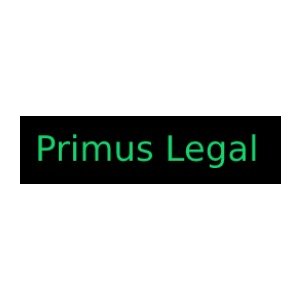Best Natural Resources Lawyers in Bangladesh
Share your needs with us, get contacted by law firms.
Free. Takes 2 min.
Or refine your search by selecting a city:
List of the best lawyers in Bangladesh
About Natural Resources Law in Bangladesh
Natural resources in Bangladesh are abundant, with the country endowed with a rich variety of resources including land, water, minerals, and forests. The legal framework governing natural resources in Bangladesh aims to ensure their sustainable development and management, balancing economic growth with environmental conservation. The government has enacted various laws to regulate the extraction, use, and management of these resources while considering both national interests and international obligations.
Why You May Need a Lawyer
There are several situations where individuals or businesses might need legal assistance related to natural resources in Bangladesh:
- Land Disputes: Conflicts over land ownership and usage rights can arise, especially in areas rich in natural resources.
- Resource Extraction: Businesses involved in extracting resources like minerals or water may require permits and must comply with specific regulations.
- Environmental Compliance: Companies must adhere to environmental laws and may need legal assistance to ensure they comply with environmental standards and regulations.
- Conservation Efforts: NGOs and other organizations working in conservation may need legal help navigating compliance and advocacy for ecological preservation.
- Regulatory Changes: Staying informed and compliant with the ever-evolving laws governing natural resources is critical, and a lawyer can provide up-to-date insights and assistance.
Local Laws Overview
The legal landscape for natural resources in Bangladesh is multifaceted, involving several key legislative acts:
- The Mines and Minerals (Regulation and Development) Act: This act regulates the mining sector, ensuring sustainable and regulated mineral extraction.
- The Bangladesh Environment Conservation Act: This act aims at protecting and conserving the environment, setting necessary guidelines for activities involving natural resources.
- The Forest Act: Governs the conservation and management of forests, promoting sustainable use of forest resources.
- The Water Act: Manages water resources, particularly focusing on supply, pollution control, and conservation practices.
Frequently Asked Questions
What are the main regulatory bodies governing natural resources in Bangladesh?
The key regulatory bodies include the Ministry of Environment, Forest and Climate Change, the Ministry of Water Resources, and the Bangladesh Forest Department.
What legal permits are required for mining operations?
Mining operations require several permits including exploration and mining licenses, environmental clearance, and often, land use permissions.
How can land ownership disputes related to natural resources be resolved?
Land disputes can be resolved through negotiation, arbitration, or litigation in local courts depending on the complexity of the issue. Legal representation is often essential.
What environmental obligations do companies have?
Companies are required to conduct Environmental Impact Assessments (EIAs), obtain necessary clearances, and comply with pollution control measures.
How is forest conservation regulated?
Forest conservation is regulated under the Forest Act, which outlines protected forest areas, regulates the use of forest resources, and sets penalties for illegal activities.
What are the penalties for illegal extraction of natural resources?
The penalties can include hefty fines, imprisonment, and revocation of licenses depending on the severity of the violation.
How are water resources managed legally?
Water resources are managed under The Water Act, with provisions for usage rights, conservation measures, and pollution control.
Can local communities claim rights over natural resources?
Local communities may claim traditional rights or stakeholder interests in certain contexts, often involving negotiations or court proceedings.
What role does public participation play in resource management?
Public participation is crucial, particularly during the public consultation phases of EIAs and when formulating local resource management policies.
How can I stay updated on legal changes affecting natural resources?
Staying in touch with a legal expert or subscribing to updates from relevant government departments can help you remain informed on legal changes.
Additional Resources
For more information, consider consulting the following resources:
- Ministry of Environment, Forest and Climate Change: Provides regulatory information and policies.
- Bangladesh Forest Department: Offers guidelines and updates on forest conservation efforts.
- Department of Environment: A good resource for environmental regulations and compliance requirements.
- Local Legal Aid Organizations: Various NGOs provide legal aid and advisory services related to natural resources.
Next Steps
If you require legal assistance in the field of natural resources, consider the following steps:
- Identify Your Issue: Clearly define your legal issue and gather all relevant documents and information.
- Seek Expert Advice: Consult with a lawyer specialized in natural resources for tailored advice and insights.
- Research Local Regulations: Stay informed about the specific laws and regulations relevant to your case.
- Engage a Lawyer: Hire a lawyer for ongoing legal representation and to navigate any legal proceedings if necessary.
- Utilize Available Resources: Access government portals and legal aid organizations for additional support.
Lawzana helps you find the best lawyers and law firms in Bangladesh through a curated and pre-screened list of qualified legal professionals. Our platform offers rankings and detailed profiles of attorneys and law firms, allowing you to compare based on practice areas, including Natural Resources, experience, and client feedback.
Each profile includes a description of the firm's areas of practice, client reviews, team members and partners, year of establishment, spoken languages, office locations, contact information, social media presence, and any published articles or resources. Most firms on our platform speak English and are experienced in both local and international legal matters.
Get a quote from top-rated law firms in Bangladesh — quickly, securely, and without unnecessary hassle.
Disclaimer:
The information provided on this page is for general informational purposes only and does not constitute legal advice. While we strive to ensure the accuracy and relevance of the content, legal information may change over time, and interpretations of the law can vary. You should always consult with a qualified legal professional for advice specific to your situation.
We disclaim all liability for actions taken or not taken based on the content of this page. If you believe any information is incorrect or outdated, please contact us, and we will review and update it where appropriate.
Browse natural resources law firms by city in Bangladesh
Refine your search by selecting a city.

















